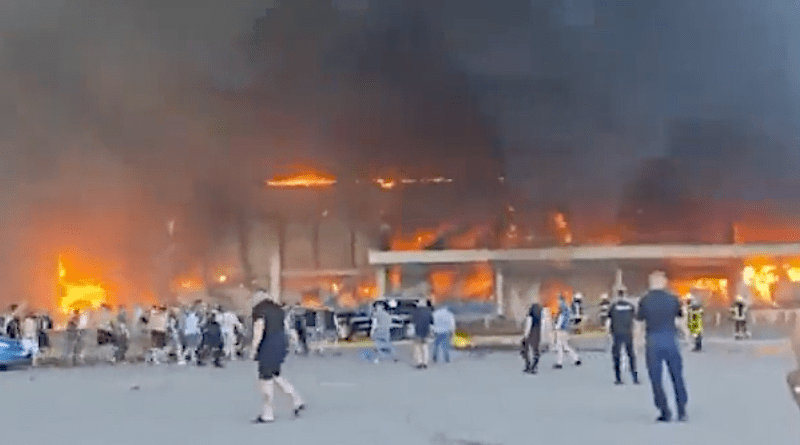Are Non-Russians Putin’s Primary Domestic Target In Ukrainian War Effort Or Only Collateral Damage? – OpEd
By Paul Goble
For almost a century, many have debated whether Stalin’s attack on the peasantry at the time of collectivization was primarily an act of genocide directed against Ukraine or a campaign designed to destroy the peasantry as a class, many but far from all of whose members were Ukrainians.
That Stalin had a particular hatred for Ukrainians and gave orders for special treatment to be meted out to them to ensure that more would die is now before question, but the fact that he destroyed millions of Belarusians, Kazakhs, and even ethnic Russians during collectivization is beyond question.
Consequently, the most reasonable description of Stalin’s actions 90 years ago was that it was both an act of genocide against Ukrainians as well as other nations and an action designed to destroy the peasantry as a class regardless of what the nationalities of its constituent elements happened to be.
That non-Russians have been hurt worse than ethnic Russians within Russia in the course of Putin’s war in Ukraine has been suggested by many commentators even though precise statistics are hard to come by (e.g., themoscowtimes.com/2022/09/27/ethnic-minorities-hit-hardest-by-russias-mobilization-activists-say-a78879).
Such suggestions have led many to take the next step and conclude that this is the latest act of genocide by Putin whose hostility to and policies against non-Russians are beyond question. However, there are three reasons to take such suggestions cautiously, even if they do reflect part of the truth especially now.
First, a few Russians have made similar arguments and suggested that Putin’s war in Ukraine is also an act of genocide against the Russian people given that many of the soldiers fighting and dying in Ukraine are ethnic Russians from predominantly rural areas who also have little choice economically but to join the military.
But these claims are far fewer not only because there are few commentators who write from the perspective of the Russian hinterland and because there are few organizations in predominantly ethnic Russian regions who are opposed to the war and inclined to speak out. There are some but not nearly as many as in non-Russian areas.
Moreover, the Russian opposition both within Russia and even more in the emigration is Moscow-centric. It may criticize the war, but mostly it does so from a country-wide perspective rather than on behalf of the ethnic Russian majority. Thus, it often picks up the more vocal non-Russian complaints and ignores the Russian situation.
Second, non-Russians are more vocal about what is going on because they have long-standing and entirely correct perceptions that Putin is hostile to them, because their societies are far more consolidated that are ethnic Russians in regions outside of Moscow and because their opposition both within the country and abroad reports their sufferings more frequently.
Consequently, there is an imbalance in coverage between what Putin’s actions are doing in non-Russian areas and what effect they are having in Russian ones. That has benefited those of us who try to keep track of what goes on in the former but is a factor that must be kept in mind to ensure accuracy.
And third, the fact that many non-Russian areas have suffered from Putin’s war more than ethnic Russian ones reflects another underlying reality: most non-Russian areas are significantly poorer than most predominantly ethnic Russian ones, and thus their men are more likely to choose to serve in the military as a way out of their economic distress. (For documentation of that, see windowoneurasia2.blogspot.com/2022/09/the-more-economically-depressed-russian.html.)
Poverty among the non-Russians is of course a result of both history and Putin’s anti-Russian policies; but precisely because it is a factor in what is happening now, it is important to remember that the Kremlin leader is waging war not only against non-Russians but against poorer and more rural elements in his country in much the same way Stalin did.
Far be it from me to minimize in any way the extent to which the non-Russians are victimized by Putin’s policies. In many respects, they suffer now as they did in Soviet times from a double discrimination, one based on class and the other based on ethnicity. But that must not distract attention from the fact that ethnic Russians are his victims too.
And those who deny that by suggesting that only non-Russians are play into the implicit message of the Kremlin that it is on the side of the Russian people. In fact, it is against them as well; and the sooner the ethnic Russians recognize that reality, the sooner they will take action, alongside the non-Russians, to change it.

